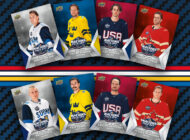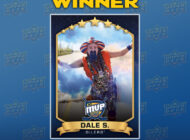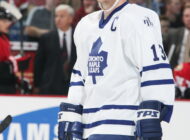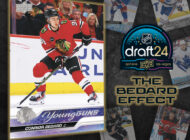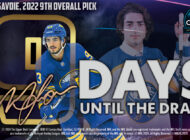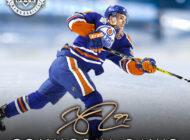It’s the first week of May, and we’re already nearly a week into the second round of action of the Stanley Cup Playoffs. The ongoing highlight of the conference semifinals, of course, is the first ever playoff matchup between Sidney Crosby, Evgeni Malkin and the defending Eastern Conference champion Penguins, and Alexander Ovechkin’s Washington Capitals. As this is the first hockey-related post on this blog, I’m going to take a look at how we got here to these second-round matchups.
But first, a tiny bit about me. I am the hockey copy editor here at Upper Deck, which means I put all the stats and bios on all our hockey trading cards, or if I don’t do it myself I’m responsible for checking them and making sure they’re factual and accurate. I come to work every day, and essentially dive head first into the hockey world — pros, Canadian juniors, NCAA, you name it — all day every day, and I feel pretty lucky to have such a fun job. I’ve been with the company for almost a year now, and before that was a refugee of the newspaper industry, as several of our other copy editors are. I’m originally from Minnesota, and worked for three years at a small daily newspaper in Faribault, Minn., before moving to San Diego in November 2007. I’m actually really excited to have the chance to write about hockey in a longer format again, and hopefully you find what I have to say interesting and entertaining. So here goes, with a brief recap of each of the eight first-round series.
• Bruins vs. Canadiens: First a disclaimer: I am a big Canadiens fan through an odd set of circumstances, though I cling to a claim that I am not a homer, for any team in any sport, and I pride myself on my objectivity.
I grew up a huge North Stars fan in suburban St. Paul in Minnesota, and when owner Norm Green uprooted the team and moved to Texas following the 1992-93 season, it felt like my heart had been ripped from my chest. I was a freshman in high school, and I don’t think it’s too much hyperbole to say it felt like a relative had passed away, because that’s how into that team I was as a kid.
I was always a big Patrick Roy fan in my youth, and by extension a Canadiens fan, but because the Habs played in the opposite conference as the North Stars, and my chances to watch St. Patrick and his squad — whether in person or on television — were few and far between, mine was a mellow fandom for Montreal’s squad.
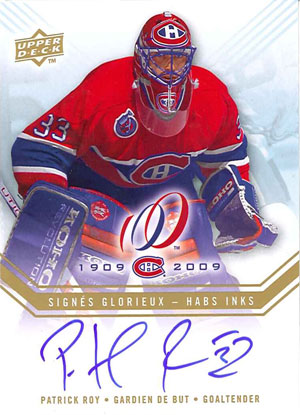
That all changed in the 1993 playoffs. A confluence of three key factors swept me away on the Canadiens’ bandwagon that spring, and I’ve never left it. For seven seasons, the Habs were my favorite NHL team, and my only favorite NHL team until the Wild came along in 2000-01, and in the ensuing nine seasons my allegiances have been spliced in half — an impossible scenario if the North Stars had stuck around.
The first factor was that the North Stars stumbled down the stretch in the spring of 1993, and barely missed the playoffs. The second was that those ’93 playoffs were back on national television, on ESPN, for the first time after a few years in Pay-Per-View purgatory, so I was able to watch a lot of Canadiens games, as well as a lot of other series. The third, of course, was that the Habs went on an improbable, magical run and won the Stanley Cup, with a staggering 10 of their 16 playoff wins coming in overtime. Since then, I’ve always felt like my being a Canadiens fans was meant to be.
Fast forward to 2009. I had a chance to participate in a Stanley Cup Playoffs pool with seven other co-workers here at Upper Deck, and the one team I wouldn’t have touched was the Habs. For a number of reasons, the second half of their season was a nightmare, and there was nothing about the way they finished the regular season that led me to believe they could suddenly flip a switch and turn things around when the games truly started to matter. Indeed, the Habs finished with an eight-game losing streak.
For the Bruins, what a better way to start the playoffs than by sweeping their biggest rival, and long-time playoff nemesis? The two teams had locked horns in the playoffs 32 times previously, with Montreal holding a 24-7 series edge. And how sweet it must have been for Michael Ryder, given up for dead by the Canadiens last spring, to stick it to his former squad by leading Boston with five goals and nine points through Sunday’s Game 2 second-round loss to Carolina.
• Devils vs. Hurricanes: This was best first-round series, hands down, in my opinion. Too bad most people stateside didn’t see it. I’d love to give this nail-biting seven-game set its due with a lengthy review, but to be honest I only watched one game of it, Game 6, finding myself at the mercy of Versus’ lovefest for Crosby and Ovechkin.
I don’t necessarily have a problem with Versus’ coverage of the playoffs, I actually think they do a decent job with the games they telecast — save a couple complaints, one of which I’ll outline in just a bit. I don’t have a problem with not being able to find Versus, I know right where it is. Surely there aren’t a lot of casual, aimless viewers stumbling onto NHL telecasts on Versus and sticking around, which is a problem and the NHL knows it, but hockey fans wanting to watch the playoffs have figured out the Versus enigma after four seasons now. I also don’t have a problem with them showing as many Penguins and Capitals games as they can. Sidney Crosby, Evgeni Malkin and Alexander Ovechkin are the NHL’s most exciting and marketable players, and the hope is they will have the crossover appeal to bring hockey into the mainstream consciousness of sports fans in the U.S.
If there were a Versus2 network that was also committed to showing NHL playoff games, you and I wouldn’t be having this, um, conversation. But there’s not, and so even as the games in this series wore on and it became apparent it was shaping up to be a beauty, it remained a rumor to most Americans. I plan on getting my fill of Crosby-Ovechkin in Round 2, but I hungered for more Devils-’Canes in Round 1.
Game 4 was a playoff classic, with Jussi Jokinen scoring the game- and series-tying goal past Marty Brodeur with two-tenths of a second remaining. And Game 7’s finish was as good as they come, with Carolina scoring twice in the final 1:20 of regulation to tie the game and take the lead, and ultimately advance. Too bad nobody saw it, even though Game 4’s dramatic conclusion went down between Versus’ broadcast of Pens/Flyers Game 4 and Sharks/Ducks Game 3. Instead of showing, ya know, some actual hockey, Versus instead decided that fans would rather watch the talking heads in the studio breaking down the East Coast action and setting up the West Coast game.
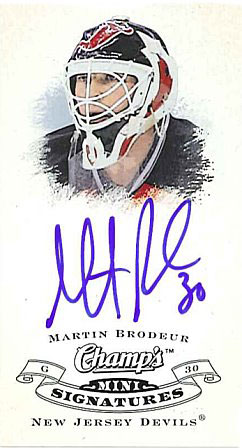
In Game 7’s aftermath, I was struck by the irony of Brodeur’s up-and-down season. Everyone knows he broke Roy’s all-time NHL wins record, and he will shortly pass Terry Sawchuk for the all-time shutouts mark. The man has looked otherworldly at times over his 16 seasons, and he was the starting goaltender for three Stanley Cup winners. But two of the Hurricanes’ four goals in Game 7 were downright weak — including Eric Staal’s final dagger that sent the Devils home with a first-round exit for the second straight season. And for the first time in his career, Marty missed a significant amount of games due to injury. He turned 37 on Wednesday, and it wouldn’t be a stretch to think he’s just not the same goaltender he was when he was carrying the Devils to the finals four times in nine seasons.
• Capitals vs. Rangers: For me, this series turned in Game 4, which was actually a 2-1 Rangers win at Madison Square Garden that put the Blueshirts up 3-games-to-1. It was Henrik Lundqvist’s best game of the series, as he stopped a career-high 38 shots, and had been the best player in the series for either team through four games.
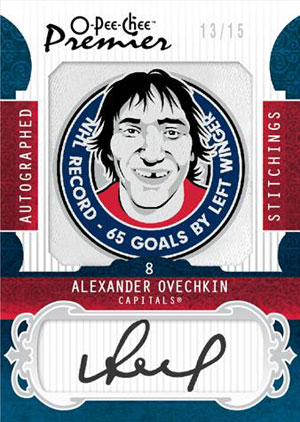
But about halfway through the third period of Game 4, the NHL’s premier pest, Sean Avery, decided the Rangers needed a little of his brand of nonsense, despite the fact his team was leading 2-1 in the game and was about to take a stranglehold on the series. Avery took four minor penalties himself in Game 3, and added a game misconduct for punching Simeon Varlamov in a 4-0 Capitals victory. Near the end of Game 4, he first backhanded Milan Jurcina in the face with the knob of his stick, creating a nice little gash for the young Slovak defender, though Avery tried to be slick about it and make it look like an accident. He might have gotten away with it if Jurcina hadn’t started bleeding and slumped over immediately. Instead he was escorted to the penalty box with a roughing penalty, and thankfully for him his team killed the ensuing power play and the Rangers clung to the one-goal lead. You’d think having dodged that bullet that common sense would take over, but this is Sean Avery after all, for whom common sense has been elusive.
Staggeringly, he took another needless penalty with about 3 minutes left for high-sticking Brian Pothier, and went to the box again. Once again Lundqvist and the Rangers penalty killers bailed him out, but from that point on the series shifted away from how well King Henrik and New York were playing and to whether or not Avery should or would play in Game 5. The rest, as they say, is history.
The cause and effect here are debatable — and ultimately unknowable — but what is certain is Avery was scratched for Game 5, Rangers coach John Tortorella blew a gasket in that contest, throwing a water bottle into the stands in Washington that struck a spectator. Lundqvist was average, at best, over the final three games, and was yanked from both Games 5 and 6. You could see in the Rangers’ faces on the bench they were in trouble as they were getting their doors blown off at home for the sixth game, and by the time the two teams returned to D.C. for the decisive battle, the series was all but over.
• Penguins vs. Flyers: Like I mentioned earlier, I’m all about gorging myself on Sid the Kid, Malkin and Co. in Round 2, but I didn’t catch a lot of this series, partly because of the early start times here on the West Coast (Upper Deck is located in the San Diego area). I did catch the end of Game 2, when Philly, down 1-0 in the series, carried a 2-1 lead through most of the third period, only to watch Evgeni Malkin tie the score with a power-play goal with about 3 ½ minutes left in the third period before Bill Guerin netted the winner in overtime while Pittsburgh skated with a 5-on-3 advantage.
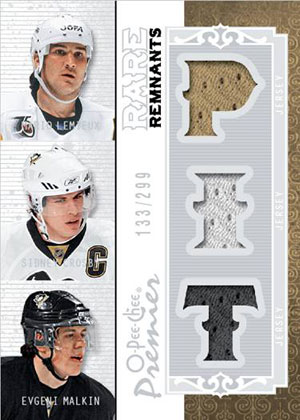
The Flyers got the first crack at the power play in OT when Hal Gill was whistled for a cross-check, and one has to think this series would have been dramatically different if Philadelphia had converted there, or been able to hold off the Penguins in regulation. Instead, Mike Knuble took his own cross-checking penalty, and Claude Giroux was whistled for slashing 30 seconds later. Once Gill’s penalty was over, Knuble and the precocious winger Giroux could only look on helplessly from the visitors’ penalty box as Guerin stuffed the puck past a surprised Martin Biron on the short side to give the Pens a 2-0 series edge.
The two teams traded wins in Philadelphia, and the Flyers looked like they might climb back into the series by winning on the road in Game 5, but ultimately Philly couldn’t dig out of the hole they’d dug for themselves in the first two games, and they had to be kicking themselves for blowing the chance to even the series in Game 2 going back home for Game 3.
• Sharks vs. Ducks: I watched more of this series than any other, catching Games 2 through 6 pretty much in their entirety, mainly because the games all started in prime time on the Pacific Coast. To my chagrin I was forced to watch three of them at a local watering hole, but that’s another story.
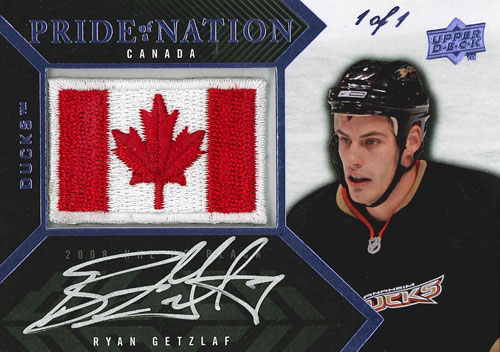
Two things struck me about this series as it went on: First, the Ducks made all the right moves late in the season, trading for defensemen Ryan Whitney, James Wisniewski and Sheldon Brookbank to bolster a blueline corps that already featured future Hall of Famers Chris Pronger and Scott Niedermayer, then having the guts to hand the starting goaltender job to second-year NHLer Jonas Hiller, even though it meant parking former Conn Smythe Trophy winner and Stanley Cup champ J.S. Giguere on the bench. Hiller was the key to the first-round upset of the Presidents’ Trophy winners, and it’s doubtful they’d have pulled that out without the young Swiss netminder manning the cage. Hiller made 35, 44, 35, 31, 48 and 37 saves, respectively, over the course of the six games.
The second was my curiosity as to what the Sharks are going to do this offseason. Judging by their regular-season performances, it seemed as though GM Doug Wilson pulled all the right strings last summer in bringing in defensemen Rob Blake, Dan Boyle and Brad Lukowich, and 117 points pretty much speak for themselves. True, the Sharks had a lot of banged-up players as the regular season neared an end, and one could wonder just how healthy guys like Blake, Patrick Marleau, Evgeni Nabokov and Ryane Clowe were heading into the postseason. It’s standard procedure for guys to play hurt in the playoffs — sometimes really hurt — and to keep their mouth shut about it. So even though those guys were on the ice, it’s hard to say how much their were bothered by their respective ailments.
When a team underachieves year after year when the playoffs come around, despite loads of talent, it has to be stupefying for the guy in charge. I’m not one to overreact to small sample sizes, and six games is a small sample size. But after four consecutive upset losses in the first or second rounds, there’s obviously a pattern there that cannot be ignored. Is Joe Thornton a playoff choker? I’m sure he doesn’t think of himself in that way, just as Sharks fans now and Bruins fans before him didn’t want to see it that way, but at this point it borders on being a self-fulfilling prophecy. For whatever reason, he hasn’t been able to elevate his play when March rolls into April, May and June, and his teams have faltered despite big expectations.
• Red Wings vs. Blue Jackets: I didn’t watch a single second of this series, but obviously it would have been a huge upset for the Jackets simply to have stretched the defending champs out beyond four or five games — never mind actually winning the series. The Red Wings seemed primed for another deep playoff run, and while the Blue Jackets had a tremendous season, qualifying for the postseason for the first time in franchise history, their best days are ahead of them. Goalie Steve Mason is going to win the Calder Trophy, and might just win the Vezina Trophy. He leads an extremely talented group of rookies that includes Derick Brassard, Jakub Voracek, Nikita Filatov and Derek Dorsett, giving Columbus a strong nucleus to build around in the years to come.
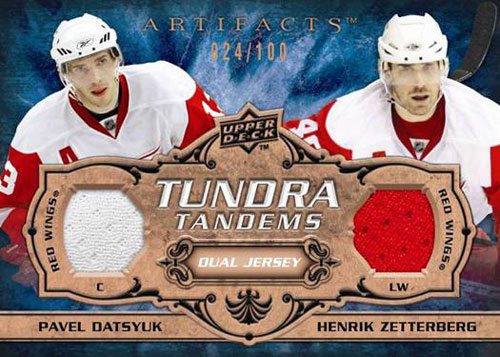
• Canucks vs. Blues: Not much to say about this series, I only watched parts of one of the games. It was a sweep for Vancouver, and while it’s not like St. Louis was overmatched in any of the four games, they only held one lead through any of the four games, and they struggled to get consistent offensive chances. As coach Andy Murray said after his team had been eliminated, the Blues were only themselves in “phases” during the series. But they have a lot of really talented young players, and keep in mind that 2006 No. 1 overall pick Erik Johnson, the expected anchor of St. Louis’ defense corps in the coming years, didn’t play one shift this season.
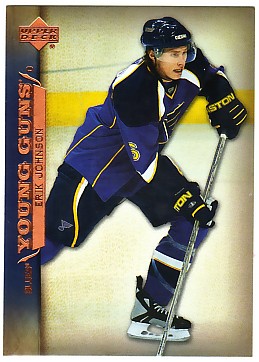
• Blackhawks vs. Flames: This series was great through the first four games, but late in Chicago’s blowout 5-1 win at home in Game 5, Dion Phaneuf suffered a leg injury, hobbled off the ice for the final time during the 2008-09 season, and the Flames chances wilted without him. Calgary was already playing without its defensive heart and soul, Robyn Regehr, and the absence of its top two defensemen — as good a pair as any team in the league can boast — was simply too much to overcome. The ’Hawks broke serve in Game 6, becoming the first team in the series to win on the road, and clinched their first playoff series win in 13 years with a 4-1 victory.
I think whatever the Blackhawks do in this postseason is a bonus, because while they’ve got a pretty good team right now, they’re still very, very young. Their captain (Jonathan Toews) is only 21, and Patrick Kane isn’t even old enough to consume an adult beverage yet. Three of their top four defensemen are 25 or younger (Duncan Keith, 25; Brent Seabrook, 24; Cam Barker 23), and this group reinvigorated NHL hockey in the Chicagoland area. It’s a great time to be a ’Hawks fan again.
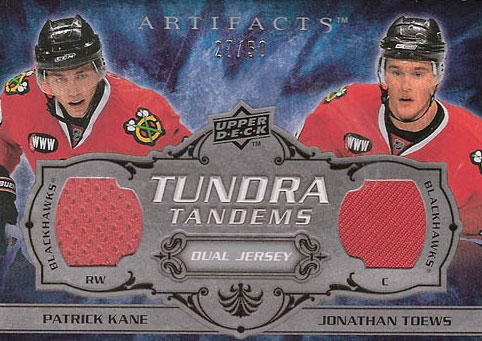
I didn’t really expect it to happen before the postseason started, but I’ve watched more hockey this spring than I think I have in my entire life. For me there’s nothing like the first round of the NHL playoffs, where there’s a virtual nightly buffet of compelling, intense hockey. The beauty though is that after the first round, and for every round thereafter, that intensity ratchets up another notch. Stay tuned!








